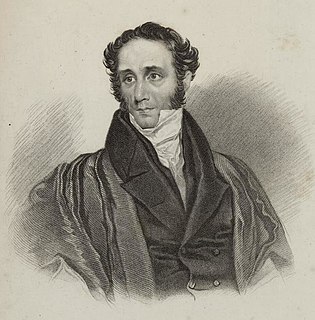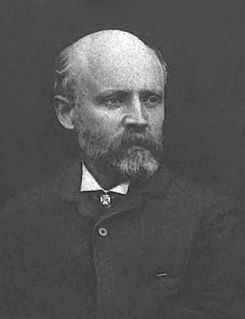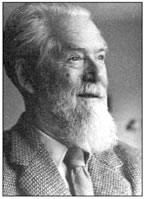Origin
Along with Moral Philosophy, Philosophy of Mind and Logic (originally called Logic and the Philosophy of the Human Mind) was one of two Philosophy chairs established at the founding of University College London. [1] : 469 The first Mind and Logic professorship was awarded to John Hoppus, a Congregational minister, who held the position from 1830 to 1866. George Grote, one of the college's founders and a member of its governing council, objected to the appointment on the grounds that the college was intended to be non-sectarian and that therefore a philosophy chair should not be held by a minister of religion. Because of this incident, Grote resigned from the council in 1830. In 1866 Grote, who had returned to the council in 1849, was instrumental in preventing the awarding of the chair to James Martineau, a Unitarian minister, for the same reasons. Grote's preferred candidate, George Croom Robertson, was appointed to the chair in 1867.

Ethics or moral philosophy is a branch of philosophy that involves systematizing, defending, and recommending concepts of right and wrong conduct. The field of ethics, along with aesthetics, concerns matters of value, and thus comprises the branch of philosophy called axiology.

Philosophy is the study of general and fundamental questions about existence, knowledge, values, reason, mind, and language. Such questions are often posed as problems to be studied or resolved. The term was probably coined by Pythagoras. Philosophical methods include questioning, critical discussion, rational argument, and systematic presentation. Classic philosophical questions include: Is it possible to know anything and to prove it? What is most real? Philosophers also pose more practical and concrete questions such as: Is there a best way to live? Is it better to be just or unjust? Do humans have free will?

The Rev. John Hoppus LL.D., PhD, FRS (1789–1875), was an English Congregational minister, author, Fellow of the Royal Society, abolitionist and educational reformer. He was appointed the first Chair of Logic and Philosophy of Mind at the newly formed London University, a position he secured and held against his formidable opponents from 1829 to 1866.
Grote's will provided an endowment of £6000 for the Chair of Philosophy of Mind and Logic, with the stipulation that the income could not be awarded to a holder of the chair who was a minister of any religion. Instead, the income was to be held back and reinvested until a lay person was again appointed. Grote died in 1871 and in 1876, two years before her own death, his widow Harriet Grote passed on the £6000 to the college. [2]
A financial endowment is a donation of money or property to a nonprofit organization which uses the resulting investment income for a specific purpose. Usually the endowment is structured so that the principal amount is kept intact, while the investment income is available for use, or part of the principal is released each year, which allows for their donation to have an impact over a longer period than if it were spent all at once. An endowment may come with stipulations regarding its usage.
Harriet Grote (1792–1878) was an English biographer, and as wife to George Grote, hostess to the English philosophical radicals of the earlier 19th century.















